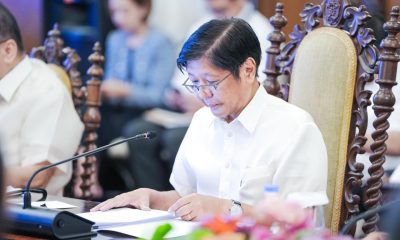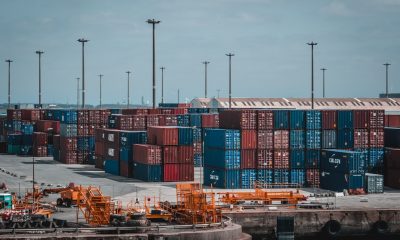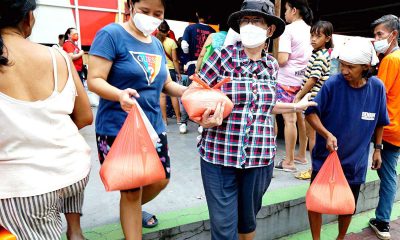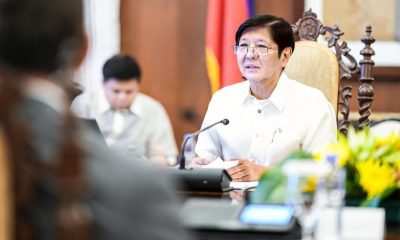News
Venezuelan negotiations resume as financial pressures mount

Venezuela’s socialist government and its opposition will seek Friday to jumpstart negotiations on resolving the country’s economic and political crisis, pressured by international sanctions and a looming presidential election. (Photo by Anyul Rivas/Flickr, CC BY 2.0)
SANTO DOMINGO, Dominican Republic — Venezuela’s socialist government and its opposition will seek Friday to jumpstart negotiations on resolving the country’s economic and political crisis, pressured by international sanctions and a looming presidential election.
The planned two-day session in the Dominican Republic is to be the first formal talks since anti-government protests collapsed in July with a toll of more than 120 dead and thousands detained. Given the scant results of previous attempts at dialogue, including talks last year mediated by the Vatican, expectations are low.
But some analysts expressed optimism a deal could be struck because the cash-strapped administration of President Nicolas Maduro is desperately looking for support as it tries to refinance Venezuela’s huge foreign debt. That will give the opposition a foothold to press their demands, analysts said.
“I don’t think we’ve seen the stars align like we have at this moment,” said Geoff Ramsey, a Venezuela researcher at the Washington Office on Latin America.
Just the fact that the two sides agreed to talk is a sign of progress.
Still smarting from their belief the government committed fraud to pull off an unexpected victory in recent gubernatorial elections, several opposition parties are boycotting the talks as well as this month’s mayoral elections. They say such things legitimize Maduro’s “dictatorship.”
The hardliners have won a sympathetic ear from international critics, including Luis Almagro, the head of the Organization of American States, who this week said that “if I were Venezuelan I wouldn’t go to the dialogue.”
Reflecting those tensions, the opposition delegation led by National Assembly President Julio Borges will for the first time include representatives from civil society groups. He said that would add transparency to the closed-door talks.
Borges said they will repeat longstanding demands that the government release dozens of political prisoners, recognize the National Assembly’s authority and allow humanitarian aid. And the opposition will push for guarantees that next year’s the presidential election will be free and fair, he said.
“We want Venezuelans, with their vote, to be the ones who change this government,” he said earlier this week at a news conference to outline goals for the talks.
Lending urgency to the talks is Venezuela’s spiraling financial crisis. Despite holding the world’s largest oil reserves, the OPEC nation has been battered by the fall in crude prices and by a slide in production. The resulting cash crunch has aggravated economic problems that have Venezuelans struggling with skyrocketing inflation and shortages of food and medicine.
Financial sanctions imposed by the Trump administration in retaliation for Venezuela’s alleged human rights violations threaten to exacerbate the pain.
U.S. investors are banned from providing fresh capital to Venezuela, making it virtually impossible for Maduro to renegotiate billions in foreign debt.
The U.S. Treasury Department, however, has said that sanctions could ease if any debt restructuring deal was endorsed by Venezuela’s legislature, whose authority has been gutted by a pro-government assembly formed to rewrite the constitution.
Also providing an extra nudge will be the presence as observers of foreign ministers from a half dozen Latin American countries, including two of Maduro’s staunchest leftist allies, Bolivia and Nicaragua, and two harsh critics, Mexico and Chile.
Luis Vicente Leon, president of the polling firm Datanalisis, said Venezuela’s economic crisis is pressuring Maduro in a way not seen in nearly two decades of socialist rule that began with the late President Hugo Chavez.
“I think that the chances of successful negotiation are limited more to the economic sector than the political one,” he said. “However, the government will have to make some political concessions to lower the economic tension.”





















